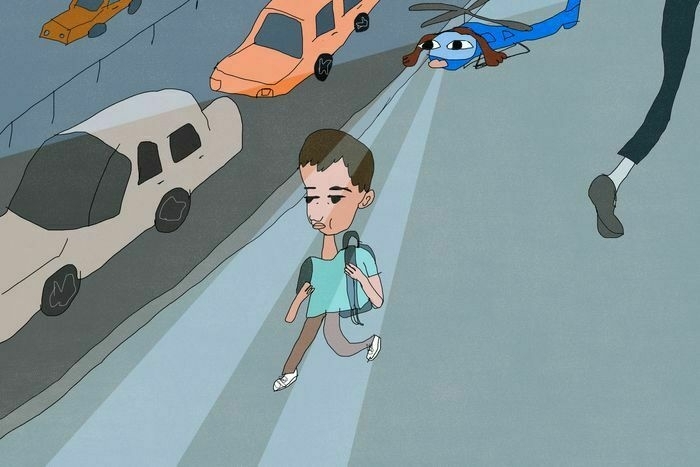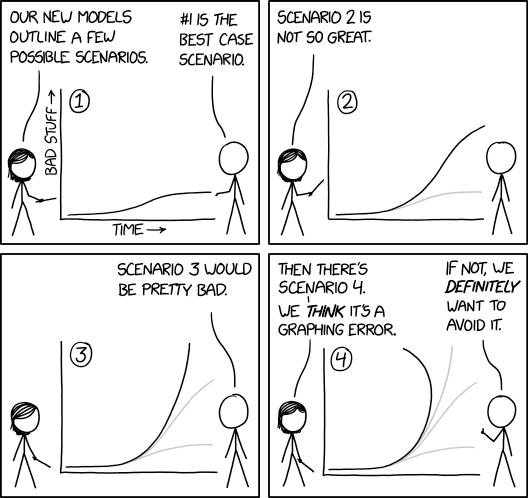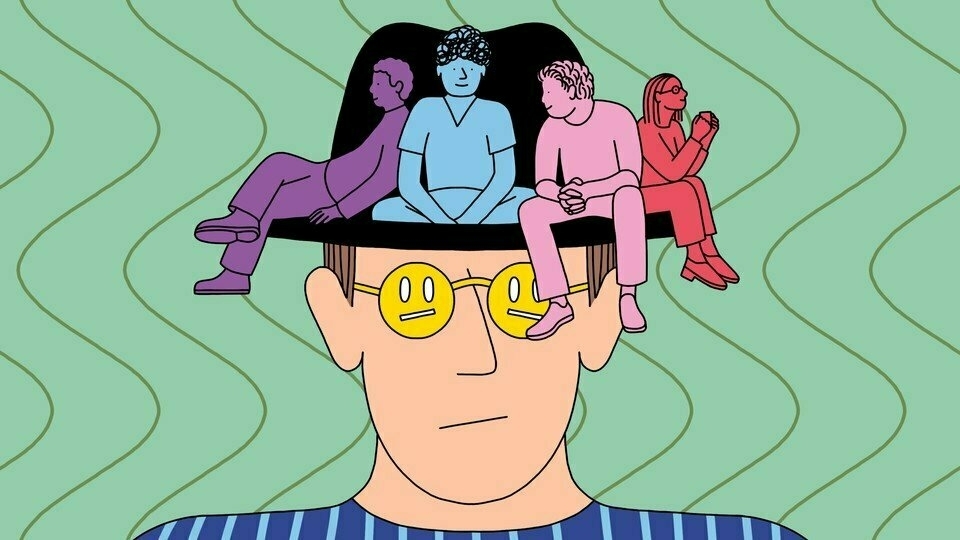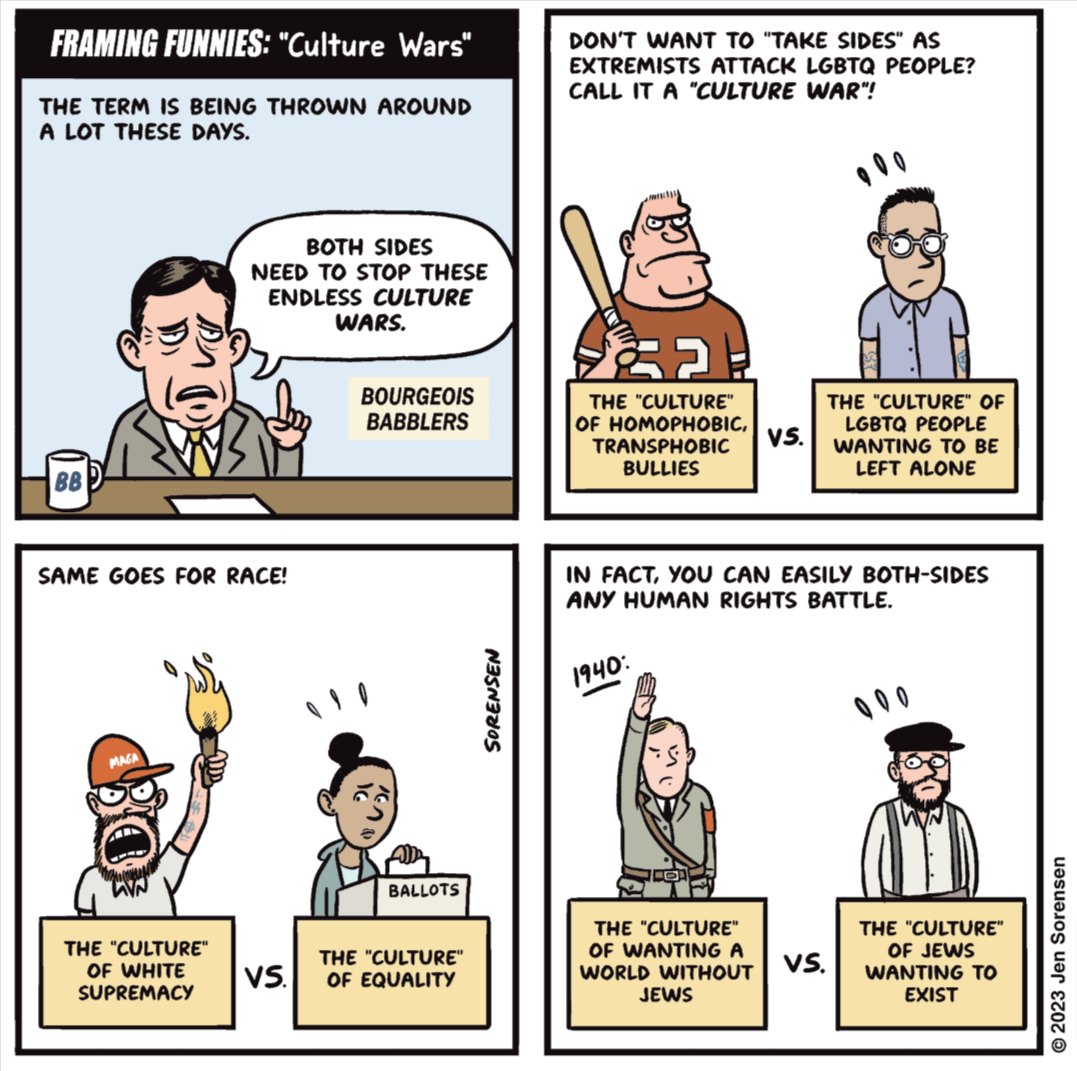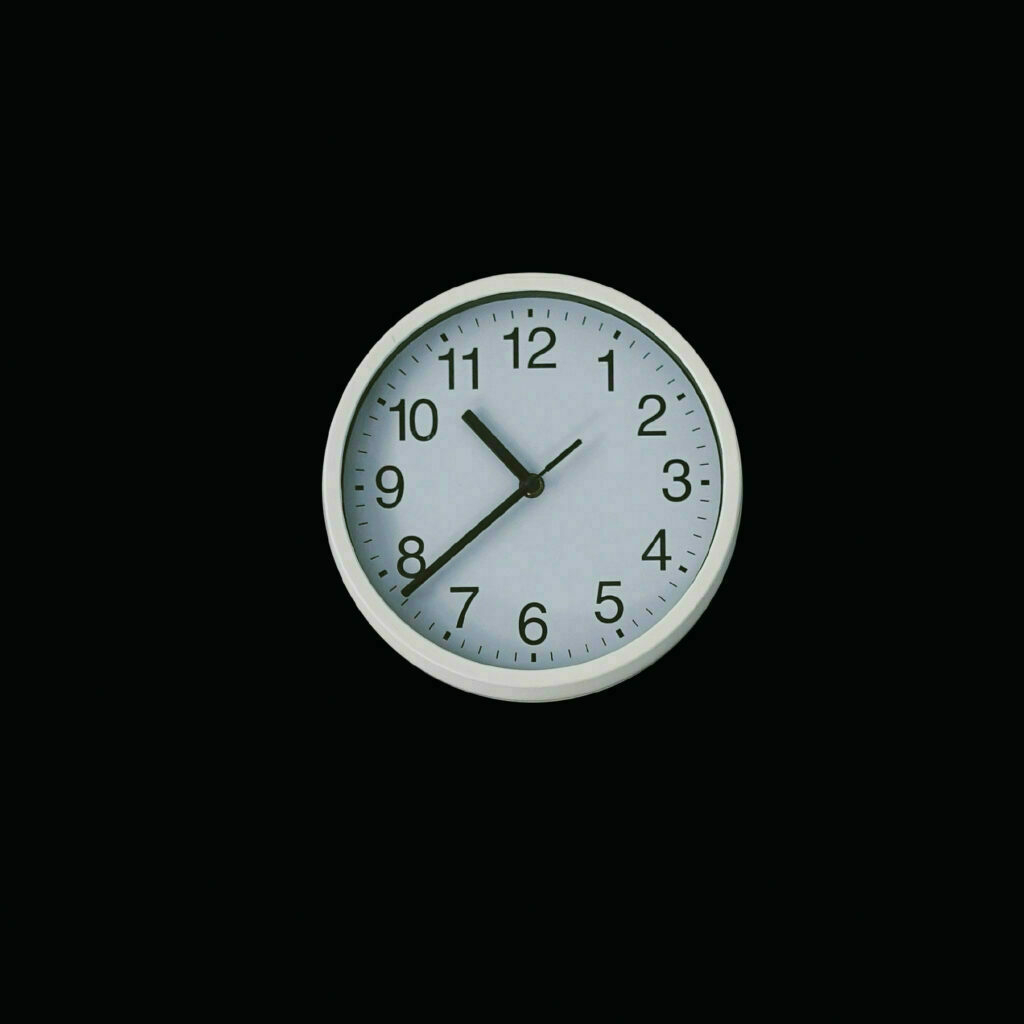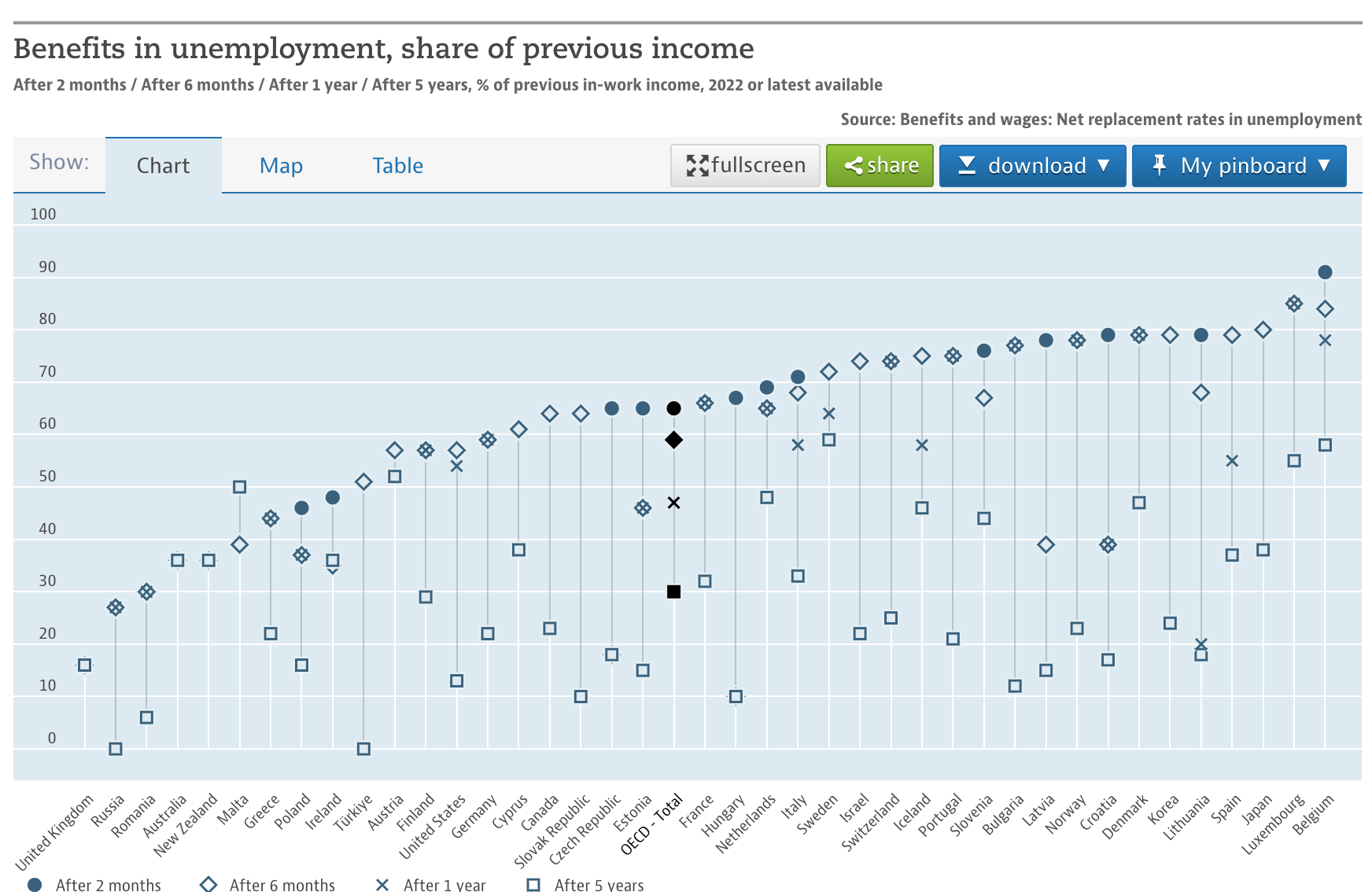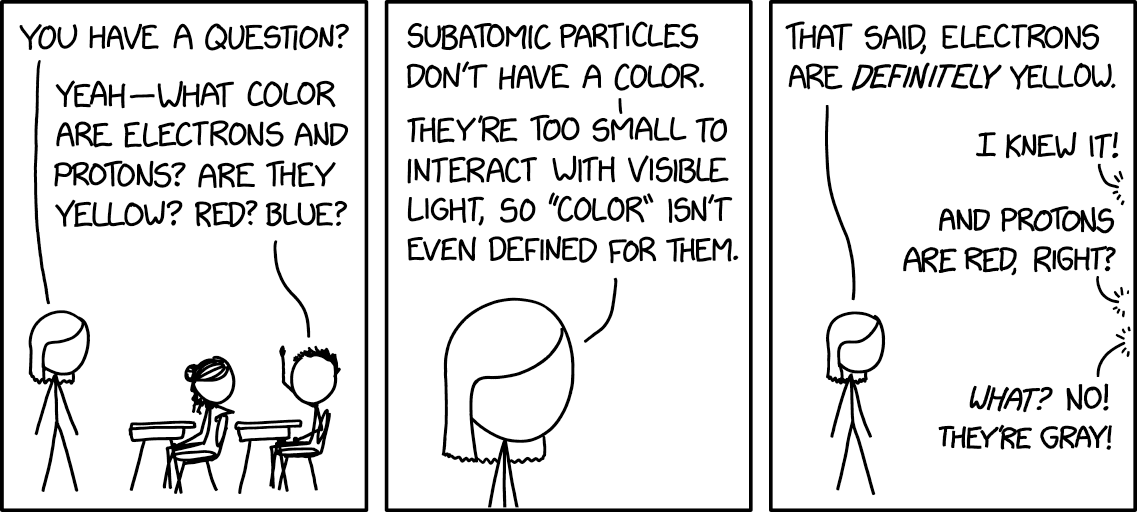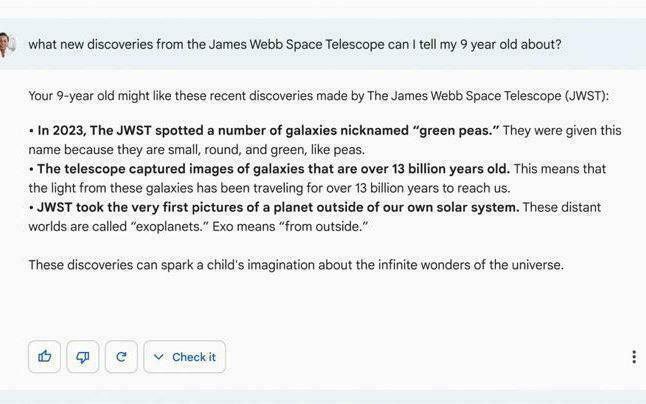Relationships and therapy-speak
I’m hugely supportive of people choosing therapies such as CBT and using language from NVC. However, it’s possible to go too far.
My wife has told me “not to use that language” with her before when she thinks that I’m using it in a way that doesn’t feel in some way natural. And it seems that it’s particularly prevalent in younger generations? Interesting article.
In recent years, therapy concepts like self-care and boundary-setting have shown up everywhere online, with Instagram accounts and other social media communities sharing mantras and advice advocating for self-actualization. TikTok therapists like Nadia Addesi and TherapyJeff offer tips for struggling with anxiety, self-esteem, and people-pleasing. “Therapy speak” — prescriptive language describing certain psychological concepts and behaviors — can be found everywhere from group chats to dating apps. Now, we have more language to advocate for ourselves and our needs, whether it be canceling plans when we feel overwhelmed or ending relationships that no longer serve us.Source: Is Therapy-Speak Making Us Selfish?It’s important to be able to set boundaries and advocate for yourself. Occasionally, though, the emphasis on protecting one’s individual needs can overlook the fact that someone else is on other side of that boundary-setting. In 2019, for instance, a relationship coach’s Twitter thread offering a template for telling friends in need of support that you’re “at capacity” at the moment drew criticism for equating friendship to emotional labor. Earlier this year, a clinical psychologist’s TikTok video outlining how to break up with a friend went viral after viewers pointed out that it sounded like a missive from HR. Critics have noted that personal relationships require a touch more compassion than some of these therapeutic blueprints offer.
[…]
There are reasons a person might be tempted to overindulge in some of this self-care behavior. Conflict can be difficult, and people might think they can avoid it by asserting their needs in a way that prevents the other person from responding — by using HR language to end a friendship, for instance, or via straight-up ghosting. And by couching the behavior in therapy language, the hard “boundary” can feel more legitimate, or even virtuous.
[…]
Beyond boundary-setting and inflexibility, the proliferation of therapy speak has also inspired some people to assign labels like “toxic” and “narcissistic” to certain relationships or behaviors. Though toxic people and narcissists do exist, these armchair diagnoses don’t always accurately capture every dynamic, and being on the receiving end of this language can be destabilizing when it’s misplaced.
More on why billionaires should not exist
This article frames ultra-rich people owning and using superyachts and private jets as ‘theft’ because it reduces the amount of time we’ve got to avert climate disaster.
Yes, it is.
But it’s also theft because the purchase of these yachts and jets are only possible because of the enormous sums of money stolen from workers to fund their extravagant lifestyles.
Owning or operating a superyacht is probably the most harmful thing an individual can do to the climate. If we’re serious about avoiding climate chaos, we need to tax, or at the very least shame, these resource-hoarding behemoths out of existence. In fact, taking on the carbon aristocracy, and their most emissions-intensive modes of travel and leisure, may be the best chance we have to improve our collective climate morale and increase our appetite for personal sacrifice, from individual behavior changes to sweeping policy mandates.Source: The Superyachts of Billionaires Are Starting to Look a Lot Like Theft | The New York TimesOn an individual basis, the superrich pollute far more than the rest of us, and travel is one of the biggest parts of that footprint. Take, for instance, Rising Sun, the 454-foot, 82-room megaship owned by the DreamWorks co-founder David Geffen. According to a 2021 analysis in the journal Sustainability, the diesel fuel powering Mr. Geffen’s boating habit spews an estimated 16,320 tons of carbon-dioxide-equivalent gases into the atmosphere annually, almost 800 times what the average American generates in a year.
And that’s just a single ship. Worldwide, more than 5,500 private vessels clock in about 100 feet or longer, the size at which a yacht becomes a superyacht. This fleet pollutes as much as entire nations: The 300 biggest boats alone emit 315,000 tons of carbon dioxide each year, based on their likely usage — about as much as Burundi’s more than 10 million inhabitants. Indeed, a 200-foot vessel burns 132 gallons of diesel fuel an hour standing still and can guzzle 2,200 gallons just to travel 100 nautical miles.
Negative UK growth
Growth isn't everything. However, the fact that the word 'Brexit' does not appear anywhere in this article tells you all you need to know about (a) British politics, and (b) the relationship between the government and the BBC.

The UK is set to be one of the worst performing major economies in the world this year, according to the International Monetary Fund (IMF).
[...]
IMF researchers have previously pointed to Britain's exposure to high gas prices, rising interest rates and a sluggish trade performance as reasons for its weak economic performance.
[...]
Liberal Democrat Treasury spokesperson Sarah Olney said the forecast was "another damning indictment of this Conservative government's record on the economy".
Source: UK to be one of worst performing economies this year, predicts IMF | BBC News
The laziness of helicopter parenting
This article in The Cut by Kathryn Jezer-Morton is fantastic. There’s a tension in parenting between, on the one hand, giving your kids space to grow, be themselves, and make mistakes — and, on the other, looking out for them, being time-efficient, and avoiding the opprobrium of other parents.
As my kids get older, I am learning how labor-intensive it is to teach them to be independent, and I’m beginning to think that we have the helicopter-parent/hands-off-parent binary all wrong. Maybe helicopter parenting is a form of neglect, one that might even be comparable in its harmfulness to the kind of neglect that forces kids to grow up by their own wits. The crisis of teen mental health in the wake of COVID can be explained in all sorts of ways, but a common denominator is that many teenagers feel that they have no control over their lives, which is distressing for any human. When you teach a kid to be safely independent, you give them some of that control. Denying a kid that opportunity is cruelty disguised as parental virtue – it’s beyond fucked up and dark, when you really think about it.Source: Are Helicopter Parents Actually Lazy? | The CutI also wonder if we misunderstand some of the motivations for helicopter parenting. We assume it’s an anxiety response, and I’m sure that explains a lot of it, but it’s also the path of least resistance.
[…]
“Parents who are very involved, wanting to know what their child is doing in the world — that is often considered part of helicopter parenting, but that isn’t necessarily a problem,” said [Dr. Gail Saltz, clinical associate professor of psychiatry at New York-Presbyterian Hospital and host of the How Can I Help? podcast from iHeartRadio]. “Being involved is distinct from wanting to help a child make all of their decisions. The problem is ‘I will help you do all the things. I will get involved in your conflicts. I will not let you make any mistakes.’” According to Saltz, even parents of young children should avoid approaching parenting as a troubleshooting exercise. Children become accustomed to this degree of parental involvement. The more time parents spend clearing the path for their offspring, the harder it is for children to adapt to facing obstacles on their own.
[...]
Helicopter parenting is also a way of protecting yourself from the judgment of other parents. In fact, its specter can loom even larger than actual threats to children’s safety. The off-piste vigilance of strangers can make an otherwise safe, ordinary situation spiral into conflict and defensiveness.
[...]
It doesn’t take only energy and attention to teach your kids to navigate independence safely. It takes a certain willingness to accept that someone out there might think you’re a bad parent. Allowing imagined judgment to cloud our decision making is like letting an internet comments section make our choices for us. Helicopter parenting is the manifestation of overlapping anxieties about the hazards of the world and about the opinions of other people. It’s also a product of the narcissistic delusion that our children’s (inevitable, developmentally necessary) failures are our own.
Illustration: Hannah Buckman
Spaced repetition, newsletters, and book-writing
My son’s revising for exams at the moment. I used to be a teacher. One of the things that I’m trying to get across to him is the importance of ‘spaced repetition’.
This post is interesting because it takes that idea and suggests that the best newsletters are ones that help you understand key concepts by giving examples on a regular basis. The author suggests that, in this way, you can effectively write a book.

Spaced repetition is a learning technique where you embed things into memory by re-studying them on a regular basis – for example, organising flash cards so that each new concept is refreshed after a day, then a week, then a month, then a year. One of the unappreciated functions of many newsletters – to be clear, not this newsletter, but other newsletters – is to function as an ad-hoc spaced repetition system.Source: Spaced Repetition Through Newsletters | Atoms vs Bits[…]
One thing I wonder about is which kinds of topics are better served by newsletters, and which are better served by books. Presumably if you’re creating a complex argument that requires the reader to hold in mind various ideas that build together, a book is a better fit than a newsletter.
However, many books I read strike me as having One Big Point and then a long series of examples, and in that case I suspect a newsletter dribbling out the examples might be better for reader retention.
[…]
We spend so much time reading that it always makes me sad to think that including a little more repetition would have disproportionate impact on our ability to remember and relate to the information we’ve read. In theory we could be note-taking and flash-carding after reading, but this (frankly) feels more like a chore than a pleasure. At their best, “repetitive” newsletters are one way to achieve the same goal less aversively.
Image: Midjourney (see alt text for prompt)
Curiosity, projectories, and AI
I’ve read a lot of danah boyd’s work over the years, especially given how her research interests intersect with my work. In this long-ish post, she argues for an approach to AI driven by curiosity and the concept of ‘projectories’ (subject to guardrails).
I just returned from a three month sabbatical spent mostly offline diving through history and I feel like I’ve returned to an alien planet full of serious utopian and dystopian thinking swirling simultaneously. I find myself nodding along because both the best case and worst case scenarios could happen. But also cringing because the passion behind these declarations has no room for nuance. Everything feels extreme and fully of binaries. I am truly astonished by the the deeply entrenched deterministic thinking that feels pervasive in these conversations.Source: Resisting Deterministic Thinking | danah boyd[…]
The key to understanding how technologies shape futures is to grapple holistically with how a disruption rearranges the landscape. One tool is probabilistic thinking. Given the initial context, the human fabric, and the arrangement of people and institutions, a disruption shifts the probabilities of different possible futures in different ways. Some futures become easier to obtain (the greasing of wheels) while some become harder (the addition of friction). This is what makes new technologies fascinating. They help open up and close off different possible futures.
[...]
Even though deterministic thinking can be extraordinarily problematic, it does have value. Studying the scientists and engineers at NASA, Lisa Messeri an Janet Vertesi describe how those who embark on space missions regularly manifest what they call “projectories.” In other words, they project what they’re doing now and what they’re working on into the future in order to create for themselves a deterministic-inflected roadplan. Within scientific communities, Messeri and Vertesi argue that projectories serve a very important function. They help teams come together collaboratively to achieve majestic accomplishments. At the same time, this serves as a cognitive buffer to mitigate against uncertainty and resource instability. Those of us on the outside might reinterpret this as the power of dreaming and hoping mixed with outright naiveté.
[...]
Where things get dicy is where delusional thinking is left unchecked. Guard rails are important. NASA has a lot of guardrails, starting with resource constraints and political pressure. But one of the reasons why the projectories of major AI companies is prompting intense backlash is because there are fewer other types of checks within these systems. (And it’s utterly fascinating to watch those deeply involved in these systems beg for regulation from a seemingly sincere place.)
[...]
Rather than doubling down on deterministic thinking by creating projectories as guiding lights (or demons), I find it far more personally satisfying to see projected futures as something to interrogate. That shouldn’t be surprising since I’m a researcher and there’s nothing more enticing to a social scientist than asking questions about how a particular intervention might rearrange the social order.
[...]
I, for one have no clue what’s coming down the pike. But rather than taking an optimistic or a pessimistic stance, I want to start with curiosity. I’m hoping that others will too.
Imaginary friends for adults
At least in my circles, there’s been a lot of talk about parasocial relationships over the last decade or so. Usually, the discussion is descriptive and simply observing the phenomenon.
In this article for The Atlantic, Arthur C. Brooks does a bit of analysis in terms of seeing parasocial relationships as a type of avoidant behaviour.
The term parasocial interaction was introduced in the 1950s by the social scientists Donald Horton and R. Richard Wohl. It was the early days of home television, and they were seeing people develop an intimate sense of relationship with actors who were appearing virtually in their home. Today, the definition is much broader. After all, actors, singers, comedians, athletes, and countless other celebrities are available to us in more ways than ever before. Forming parasocial bonds has never been easier.Source: Parasocial Relationships Are Just Imaginary Friends for Adults | The Atlantic[…]
Although there are no exact statistics on frequency that I have found, psychologists do document cases of parasocial relationships that can go much deeper, with significant consequences. Scholars note that parasocial bonds exist on a continuum of intensity, from entertainment-social (say, gossiping about a celebrity) to intense-personal (intense feelings toward a celebrity) to borderline-pathological (uncontrollable behavior and fantasies). At the deepest level, the parasocial relationship can be dangerous, such as when a fan loses touch with reality and stalks a star, under the delusion that they have a real-life connection.
[…]
In 2021, two psychologists from York University, in Canada, found that forming parasocial bonds was strongly related to avoidant attachment. That is, people who tended to push others away in their day-to-day lives were more likely than others to relate to fictional characters, and especially to characters who are also emotionally avoidant.
The madman is the man who has lost everything except his reason
I always enjoy reading L.M. Sacasas' thoughts on the intersection of technology, society, and ethics. This article is no different. In addition to the quotation from G.K. Chesterton which provides the title for this post, Sacasas also quotes Wendell Berry as saying, “It is easy for me to imagine that the next great division of the world will be between people who wish to live as creatures and people who wish to live as machines."
While I’ve chosen to highlight the part riffing off David Noble’s discussion of technology as religion, I’d highly recommend reading the last three paragraphs of Sacasas' article. In it, he talks about AI as being “the culmination of a longstanding trajectory… [towards] the eclipse of the human person”.
The late David Noble’s The Religion of Technology: The Divinity of Man and the Spirit of Invention, first published in 1997, is a book that I turn to often. Noble was adamant about the sense in which readers should understand the phrase “religion of technology.” “Modern technology and modern faith are neither complements nor opposites,” Noble argued, “nor do they represent succeeding stages of human development. They are merged, and always have been, the technological enterprise being, at the same time, an essentially religious endeavor.”Source: Apocalyptic AI | The Convivial Society[…]
The Enlightenment did not, as it turns out, vanquish Religion, driving it far from the pure realms of Science and Technology. In fact, to the degree that the radical Enlightenment’s assault on religious faith was successful, it empowered the religion of technology. To put this another way, the Enlightenment—and, yes, we are painting with broad strokes here—did not do away with the notions of Providence, Heaven, and Grace. Rather, the Enlightenment re-framed these as Progress, Utopia, and Technology respectively. If heaven had been understood as a transcendent goal achieved with the aid of divine grace within the context of the providentially ordered unfolding of human history, it became a Utopian vision, a heaven on earth, achieved by the ministrations Science and Technology within the context of Progress, an inexorable force driving history toward its Utopian consummation.
[…]
In other words, we might frame the religion of technology not so much as a Christian heresy, but rather as (post-)Christian fan-fiction, an elaborate imagining of how the hopes articulated by the Christian faith will materialize as a consequence of human ingenuity in the absence of divine action.
Image: Midjourney (see alt text for prompt)
Battles over human rights are not 'culture wars'
The right of politics seems to always find ways to describe in neutral or pejorative terms (e.g. “woke”) things that threaten the (racist, sexist, homophobic) status quo.
One of these tactics is to reframe human rights battles as ‘culture wars’, as Jen Sorensen so perfectly skewers in this cartoon.
The term “culture war” is being thrown a lot these days.Source: Culture War Hawks | The Nib (via Kottke)
The progress of AI art
After subscribing to ChatGPT even before version 4 came out, I subscribed to Midjourney recently. There’s a lot of concern around these things, and rightly so. But also, it’s exciting and (despite what some say) creative.

AI was arguably the most contentious topic in the world of art and design last year, and looks set to retain the same honour in 2023. Text-to-image generators have been causing controversy for a while now – but perhaps lost in all the noise is just how much they've developed in the last 12 months alone.Source: Mind-blowing image reveals how AI art has progressed in 1 year | Creative Bloq[…]
The images were created one year apart, with the exact same text prompt: ‘Donald Trump and Barack Obama playing basketball’. And while the first image is a nightmarish blob of barely distinguishable flesh, the second is practically photo-realistic.
Purpose, positioning, proposition
I’m just bookmarking this for next time I’m involved in a website redesign. Purpose, positioning, proposition. Right, got it.
Ultimately, in order to draw customers into the fold for the long-haul, you will need to offer your customers meaningful answers to the following three questions:Source: Releasing the purpose kraken | ABA
Why are we here? [PURPOSE]
How are we different? [POSITIONING]
Why should you care? [PROPOSITION]
If you can do this with authenticity and relevance, then you may just be onto something powerful – even kraken-like – for your brand.
Lifehouses, not churches
We used to go to church regularly. Then, as the kids grew older and sporting fixtures took over the weekend, we started going sporadically. Then, after the pandemic, we stopped going altogether. It seems we weren’t alone, as attendance, which was already declining, has fallen sharply. In fact, around 25% of Anglican churches no longer hold weekly services.
So what are we to do with these buildings? There are two massive ones at the end of our road, and a third was converted into a house a couple of decades ago. Writing in The Guardian, Simon Jenkins suggests we need to reconnect the buildings with the communities which surround them.

Throughout history these buildings have offered their publics ceremony and memorial, peace and meditation, charity and friendship, quite apart from faith. It is wrong that modern communities do not use them for such – or any other – purposes merely because religion has declined. They were built on the tithes of rich and poor alike.Adam Greenfield expands on this with the concept of 'Lifehouses'. He discusses this in a Mastodon thread with the following quotation coming from his newsletter:[…]
It is senseless to expect the Church of England to find the money to maintain these places into the future. The solution must be to reconnect them to the surrounding communities from which the decline in worship has distanced them. They must be wholly or partly secularised. This is happening across Europe, where churches are being brought under the aegis of local councils. They can benefit from a specific – usually small – local “church tax” which, in countries such as Sweden and Germany, is voluntary. This has been the churches’ salvation.
The fundamental idea of the Lifehouse is that there should be a place in every three-four city-block radius where you can charge your phone when the power’s down everywhere else, draw drinking water when the supply from the mains is for whatever reason untrustworthy, gather with your neighbors to discuss and deliberate over matters of common concern, organize reliable childcare, borrow tools it doesn’t make sense for any one household to own individually, and so on, and that these can and should be one and the same place. As a foundation for collective resourcefulness, the Lifehouse is a practical implementation of solarpunk values, and it’s eminently doable.Source: The decline of churchgoing doesn’t have to mean the decline of churches – they can help us level up | The Guardian[…]
And of course, in longer-established neighborhoods, there will often already be a building or physical site that organically serves many of these functions – the neighborhood’s naturally-arising Schelling Point, or node of unconscious coordination. Whether church, mosque, synagogue, high-school gym or public library, it will be where people instinctively turn for shelter and aid in times of trouble. What I believe our troubled times now ask of us is that we be more conscious and purposive about creating loose networks of such places, each of them provisioned against the hour of maximum need.
There are just bodies, just us
Two books to add to my reading list, courtesy of this excellent review and analysis
Illness, I think, is a temporality — and not, as Susan Sontag famously posited in Illness as Metaphor, a place, where everyone holds dual citizenship between the kingdoms of sickness and health and can pass between the two. The truer statement, it seems to me, belongs to Gilda Radner, who died young of ovarian cancer: “It’s always something.” Constantly dealing with those somethings takes time, and you can no longer even pretend that your life will go along in an orderly, productive way. But does anyone’s? I’ve come to realize that the bifurcation between the sick and the well, the disabled and the able-bodied, is capitalism’s intervention. In reality, there are just bodies, just us.Source: Is Anyone Ever Well? - Lux MagazineTwo books published this fall trouble the binary between sickness and health. Health Communism, by Beatrice Adler-Bolton and Artie Vierkant, wholly refutes the possibility of being healthy under capitalism. The Future is Disabled, by Leah Lakshmi Piepzna-Samarasinha, argues that to meet a future full of catastrophe, we need to think and act like disability activists. These books want to talk about sickness as a source of solidarity, and a way forward out of our current, very unwell state.
[…]
Separating out the well and worthy workers from the sick and unproductive surplus class is one of capitalism’s more insidious divide-and-conquer tactics. We all know the person who brags about not taking one sick day in 20 years. But if capital separates the workers from the unwell, capitalists still manage to profit from both. The state, which could sustain the sickened surplus, instead neglects them, and the private health care sector steps in to profit. Adler-Bolton and Vierkant coin the term “extractive abandonment,” (a variation on Ruth Wilson Gilmore’s description of the carceral system as “organized abandonment”) to describe how public subsidies flow to privatized facilities offering substandard care, from for-profit nursing homes to prisons. As a result, those in need of care are less likely to receive it where they could thrive, let alone exercise their self-determination. Instead, they are shunted into a “warehouse” of care, a “public-private partnership of pure immiseration.”
Smoking as an analogy for unthinking phone use
Even if, like me, you turn all but the most important notifications off, it’s easy to get used to there being something new on your phone when you’re bored. Or waiting. Or feeling anxious.
If there isn’t something new there that’s immediately accessible, it becomes more boring. I haven’t had social media apps on my phone for years, but last week I logged out of several social networks in my mobile and desktop browsers.
You’ve got to replace these things with a habit, though. So I’ve now books next to the places I tend to sit and scroll. To be honest, even playing on my Steam Deck is a better use of my time than most scrolling I do on social networks.
About twenty years later — last week — I found myself sitting at my kitchen table, mechanically upvoting and downvoting hot takes on Reddit when I realized I had been aimlessly thumbing my phone for at least twenty minutes. I was vaguely aware that I had not yet done the thing that caused me to reach for my phone in the first place, and could no longer remember what it was.Source: Most Phone Use is a Tragic Loss of Life | RaptitudeEven though I get caught up like that all the time, the nihilism of that particular twenty minutes really got to me. It was such a nothing thing to do. I said aloud what I was thinking: “That… was a total loss.”
Basically I had just aged myself by twenty minutes. Two virtual cigarettes, and not even a fading buzz to show for it. I learned nothing, gained nothing, made no friends, impacted the world not at all, did not improve my mood or my capacity to do anything useful. It was marginally enjoyable on some reptile-brain level, sure, but its ultimate result was only to bring me nearer to death. Using my phone like that was pure loss of life — like smoking, except without the benefits.
[...]I’m not trying to make a moral appeal, only a practical one. It doesn’t necessarily follow that frivolous phone use is bad or wrong. It’s unwise, and we already know that it’s unwise. But perhaps it is as unwise as smoking. Perhaps indulging the urge to browse Reddit after checking your email is just as reckless and self-destructive as lighting up a Marlboro 100 after breakfast, and will one day be seen with all the same revulsion and taboo.
Only you know how resonant this proposition is for you. If you lose ten, twenty, or thirty minutes to frivolous phone use on a multiple-times-daily basis (I sure do), it might make sense to regard it as belonging to a much higher stratum of concern than we tend to assume. Instead of grouping it with I-probably-shouldn’t-but-who-cares sorts of behaviors, like rewatching barely-worthwhile TV shows or kicking off your shoes without untying them, perhaps it belongs with possibly-catastrophic vices like daily deep-fried lunch, road raging, or smoking.
Living your best life
I didn’t know this guy, but for some reason clicked through to this post which appeared in my LinkedIn stream. It’s oddly affecting to see the words of someone who recently passed away doing so at peace with the world and hte place he had in it.
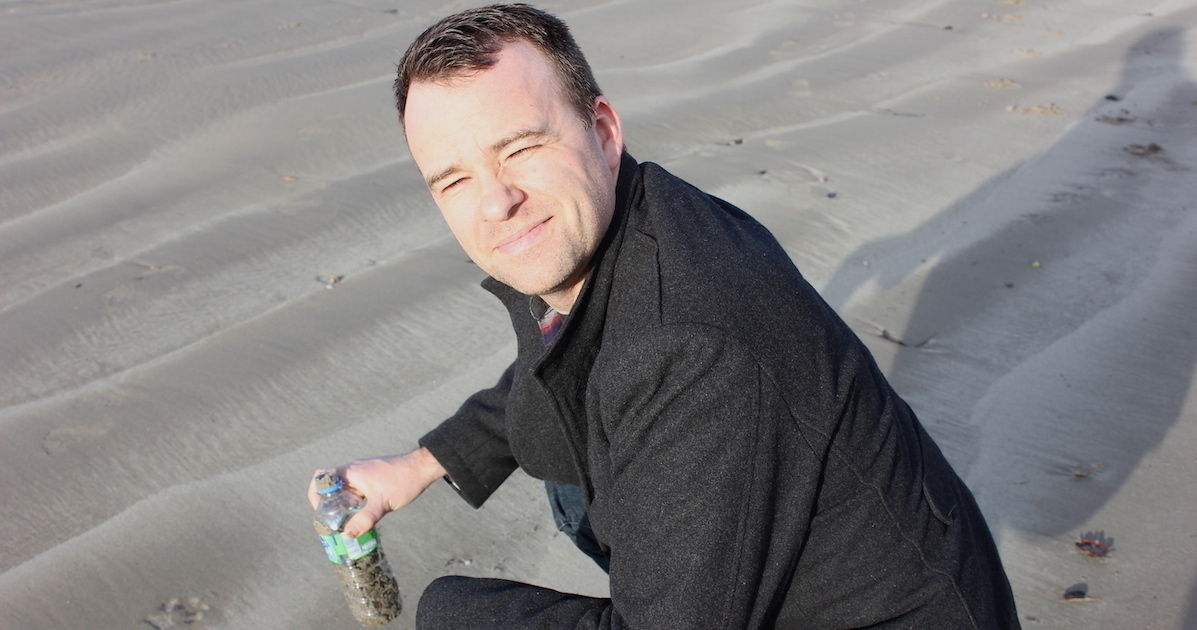
I wrote a book, I wrote a play and at least six thousand blog posts rife with dumb hot takes and cancellable offences. I ran a newspaper, a theatre company and a business. After a mentor invited me to work on the Copenhagen Climate Talks, I realised I could earn a living and still be on the side of the angels. And so, I helped to change laws that protect nature; I compelled people to get vaccinated during a pandemic; and I shook the hands of Prime Ministers in Paris.Source: They Were All Splendid | DarrenBarefoot.comI loved a woman for 27 years, but that is private and not for you.
This has been my life: art, exploring, work and love. I’m proud of it and sad that it’s shortened. I haven’t seen Asia. Will the Canucks win the Stanley Cup in the next thirty years? Will people walk on Mars?
I have a Buddhist friend who legitimately believes that every person is doing their best all of the time. I’ve finally come around to this idea. I’ve lived the best life I could.
Britain is screwed
I followed a link from this article to some OECD data which, as shown in the chart below, the UK has even lower welfare payments that the US. The economy of our country is absolutely broken, mainly due to Brexit, but also due to the chasm between everyday people and the elites.
On most measures, the country has the most limited welfare state of any developed country, including the United States, with the result being that working households are shouldering more risk than their peers and—as the Resolution Foundation recently found—today’s young Britons face paying far more in tax than they will ever receive back in terms of pensions and other benefits. The reverse is true of older cohorts.Source: Britain Is Much Worse Off Than It Understands | Foreign PolicyThere is also an unprecedented housing crisis, with young people increasingly excluded from home ownership if they cannot access family wealth. Public services are under unprecedented pressure, especially health care. Excess deaths have risen while Britain is the only country in Europe suffering from declining life expectancy.
Synesthetic xkcd
I’m a migraineur and there’s an overlap between that group of people and those who are synesthetes. But it turns out that my kids, who do not (yet?) suffer from migraines, also associate colour strongly with things that other people do not usually associate colour.
For example, days of the week. We’ve hard arguments over what colour ‘Monday’ is, for example. So this xkcd cartoon made me laugh.
Source: xkcd: Electron Color
Bad Bard
Google is obviously a little freaked-out by tools such as ChatGPT and their potentially ability to destroy large sections of their search business. However, it seems like they didn’t do even the most cursory checks of the promotional material they put out as part of the hurried launch for ‘Bard’.
This, of course, is our future: ‘truthy’ systems leading individuals, groups, and civilizations down the wrong path. I’m not optimistic about our future.
In the advertisement, Bard is given the prompt: "What new discoveries from the James Webb Space Telescope (JWST) can I tell my 9-year old about?"Source: Google AI chatbot Bard offers inaccurate information in company ad | ReutersBard responds with a number of answers, including one suggesting the JWST was used to take the very first pictures of a planet outside the Earth’s solar system, or exoplanets. This is inaccurate.
Buying when the market is selling
I love this. Nintendo is increasing the salaries of its employees even though it intends to make less of a profit. Short of giving everyone ownership, this is how you invest in your people during a downturn.
Nintendo plans to raise its employees' base pay by 10% this year in the wake of inflation. Reuters reported that Nintendo plans to raise salaries even as it reduced its profit expectation for the year. Nintendo previously cut its operating profit forecast from a projected 582 billion yen to 480 billion yen ($3.6 billion).Source: Nintendo Will Pay Its Workers 10% More ¬ GameSpotNintendo also amended its projected software and hardware sales. It projects that the Switch will sell 18 million units this year, as opposed to the prior forecast of 19 million. Similarly, it dropped the software sales forecast from 210 million units to 205 million. Nintendo re-affirmed that it does not currently have plan to raise prices for its consoles or games.


